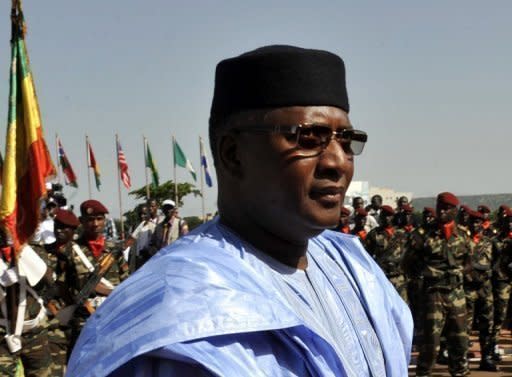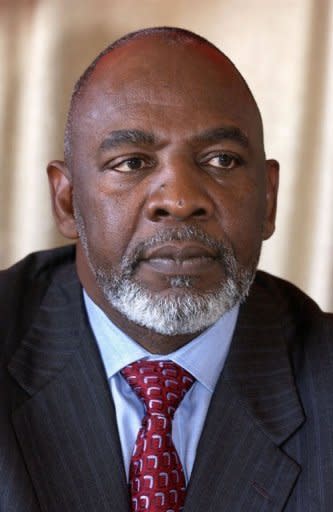Top officials arrested in post-coup Mali, premier named
Armed men rounded up top Malian officials including two presidential hopefuls in a show of force by a junta that seized power last month, as the interim leader named a Microsoft executive as prime minister. Those arrested included ex-prime minister Modibo Sidibe and Soumaila Cisse, a former minister who led the West African Economic and Monetary Union until November last year. Cisse suffered an unspecified injury while fleeing his home, and was later arrested at a hospital and taken by ambulance to the junta's headquarters in Kati, near Bamako, his office said. Both Sidibe and Cisse were leading candidates in a presidential election set for April 29 that was derailed by the March 22 coup. Aides to Mali's interim president Dioncounda Traore, who took office following an April 6 deal brokered by the Economic Community of West African States (ECOWAS), said he had no prior knowledge of the raid. On Tuesday, Traore satisfied a key condition of the ECOWAS deal by naming a prime minister to head a unity government that will include the military. The new premier, Cheick Modibo Diarra, is a noted astrophysicist who served as Microsoft's chairman for Africa and taught mechanical and aerospace engineering at Howard University in the Washington DC. Also a US citizen, he had planned to run in the aborted election this month as the candidate of the Rally for Mali's Development that he founded last year. "We must, according to our abilities, be fully committed in order to find solutions, lasting solutions, to this problem here and to regain the totality of our country, its integrity," the 60-year-old Diarra said on public television. But as Diarra takes charge of the interim government, he will have to contend with the junta which observers said carried out the high-profile arrests to show it has no intention of being sidelined by politicians. "The arrest (of Cisse) clearly shows the junta's desire to not cede power to civilians," the former minister's office said in a statement sent to AFP in Dakar. The statement further decried what it described as the violent and wreckless behaviour of the armed men. "We will hold the junta and its allies responsible for anything that happens to Soumaila Cisse." One of Sidibe's family members said "several armed men including two or three wearing masks" raided his home, arresting him for the third time since the coup. Police chief Mahamadou Diagouraga, former defence minister Sadio Gassama and Hamidou Sissoko, a top aide to ousted president Amadou Toumani Toure, were among the others arrested in overnight raids and whisked to Kati. A Malian security source said the arrests would be explained "when the time comes." A statement from European Union foreign policy chief Catherine Ashton's office demanded the "immediate release" of Sidibe and the others, calling for "urgent clarification" regarding the circumstances of their arrest. Besides dealing with the junta, Diarra, who worked on several space exploration missions for NASA, will have to negotiate with Tuareg and Islamist rebels as well as various criminal groups who took advantage of the coup to overrun much of the country's north. Initial contacts have been made with some of the groups since Traore's inauguration, and he has vowed "total and implacable war" if talks fail. The low-ranking army officers who staged the putsch justified their action by denouncing the government's ineffective resistance to the Tuareg rebellion, which was rekindled in January. The coup prompted the rebels, joined by Islamists, to capture an area roughly the size of France, including the ancient town of Timbuktu. The main Tuareg rebel group Azawad National Liberation Movement (MNLA) then declared an independent state, drawing international condemnation. A member of MNLA's political branch said Monday that a first official meeting between the rebels and Malian authorities had gone well and mooted the possibility of a federation. The make-up of the new interim government was to be decided later this week. But the length of the transition period is a key stumbling block. Under the constitution, an interim presidency should last only 40 days, but the ECOWAS-brokered deal recognised that it could take longer to organise new elections and return Mali to constitutional rule.




